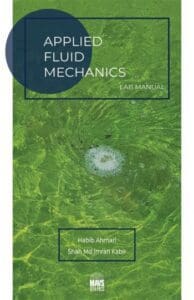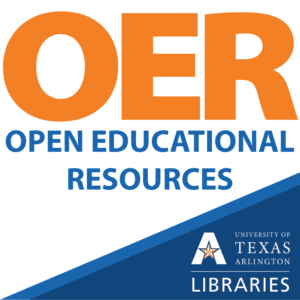Growing Together: Implementing Accessibility Practices into OER Workflows
by Michelle Reed, Assistant Professor and Head of the Scholarly Commons, University Library of the University of Illinois at Urbana-Champaign (@LibrariansReed); Brittany Griffiths, Publishing Specialist, UTA Libraries; Alexandra Pirkle, Editorial Services Coordinator, UTA Libraries, Katie Willeford, Interim Directory of OER and Learning Resources Librarian (@utalibraries)
Mavs Open Press, operated by the University of Texas at Arlington Libraries (UTA Libraries), offers no-cost services for UTA faculty, staff, and students who wish to openly publish their scholarship. The Libraries’ program provides human and technological resources that empower our communities to create or adapt open educational resources (OER). Course materials published by Mavs Open Press are openly licensed using Creative Commons licenses to allow for revision and reuse and are offered in various digital formats free of charge.
Mavs Open Press has proactively addressed accessibility and inclusion in our work through our OER training program, implementation of accessibility checks throughout the publishing process, and development of an accessibility statement and workflow. The Applied Fluid Mechanics Lab Manual was the first grant-funded OER published by Mavs Open Press and was instrumental in informing how accessibility is integrated into OER publishing at UTA.
Accessibility Through Empowerment and Experience
OER publishing services at UTA are designed to empower our authors to own as much of the creation process as possible. To accomplish this, we provide robust training, technical support services, and direct access to Pressbooks, our OER publishing and distribution platform. We selected Pressbooks for creating and publishing OER in part due to their commitment to accessibility and the ease of use for built-in accessibility features.
We aim to teach OER creators how to design with accessibility in mind by incorporating topics and speakers that expand authors’ understanding of accessibility into a required training program, and increasing their ability to create materials that meet the needs of all learners. For example, last summer our training program featured a disability advocate who faced vision loss at the age of twelve, offering the audience an opportunity to experience web tools as she does and to learn about the barriers she encounters frequently. She took questions about specific creation challenges and followed up with suggestions for some of our most challenging content.
Two additional sessions in the training series—one on using Pressbooks and another on creating video content—include learning objectives related to accessibility. Our goals focus on the why behind our accessibility policies and practices, not just the how, which OER authors find helpful. “This is the best training I’ve attended in a long time,” one attendee noted after the first half-day workshop concluded in 2018.
Accessibility Beyond Training
Conversation and intervention for accessibility continue after formal OER onboarding is complete. Accessibility checks occur twice during the OER publishing process – once as an informal check in the early stages of OER creation and then again at the end of the production and formatting process.
OER authors are required to request a preliminary accessibility check via a milestone reporting form early in the creation process to identify and address accessibility concerns as soon as possible. This informal evaluation reminds content creators to proactively consider accessible design choices throughout the creation process.
Additionally, each OER undergoes a pre-publication accessibility check before its release. This final, formal check certifies that the resources published by Mavs Open Press meet our accessibility standards. Some of the categories included in our evaluation include content organization, screen reader compatibility, hyperlink functionality, color contrast, clear and consistent navigation, alternative text for images, and closed captions for multimedia.
The resource evaluation process and accompanying rubric were developed in Spring 2017 by Ciara Turner in completion of an internship required for a minor in disability studies. Her accessibility evaluation of twenty textbooks in the Open Textbook Library informed development of the materials—the results of which are presented in a chapter she co-authored with internship supervisor, Michelle Reed, in OER: A Field Guide for Academic Librarians.
Each OER published by Mavs Open Press undergoes spot testing using assistive technology, and a rubric containing pass/fail information and a brief summary of the accessibility results is published in each of our OER. Additionally, we developed an accessibility statement by revising a resource designed by BCcampus. The statement includes information about requesting accommodations for known accessibility issues in each published OER. Though our processes and products are not perfect, we strive for growth, improvement, and transparency in all our practices.
 Accessibility Pilot Case
Accessibility Pilot Case
Applied Fluid Mechanics Lab Manual was an excellent resource to pilot our accessibility workflows because it presents a variety of content types that often pose accessibility problems, such as STEM content, images, and original video. The manual passed all ten evaluation categories, though video captioning and alternative text for some images were noted as areas that could be improved in future iterations of the OER.
Since it was published in Fall 2019, the OER has been viewed over 836,000 times and downloaded 3,600 times. In a recent interview with UTA Libraries, the author, Dr. Habib Ahmari, noted the course for which the OER was designed, a lab that is difficult to teach in a virtual environment, transitioned online in March due to COVID-19 much more easily than other courses because of the OER and its continued use by other professors.
Accessibility as a Growth Mindset
Mavs Open Press approaches accessibility as a fluid concept in that the task of implementing it in design is never truly complete. This approach encourages content creators, educators, and users alike to be vigilant in recognizing poorly designed resources, or elements within a resource, and in understanding that there are always ways to improve so that resources may be better used by people with the broadest range of abilities.
Like all things open, accessibility is iterative. Through learning, listening, and understanding the needs of students and educators, we can further refine, improve, and work towards a greater level of accessibility in our policies, processes, and products. Our collaborative efforts ensure we are cultivating an organizational culture of accessible design.
Updated 20210809 to clarify blog post authors.
